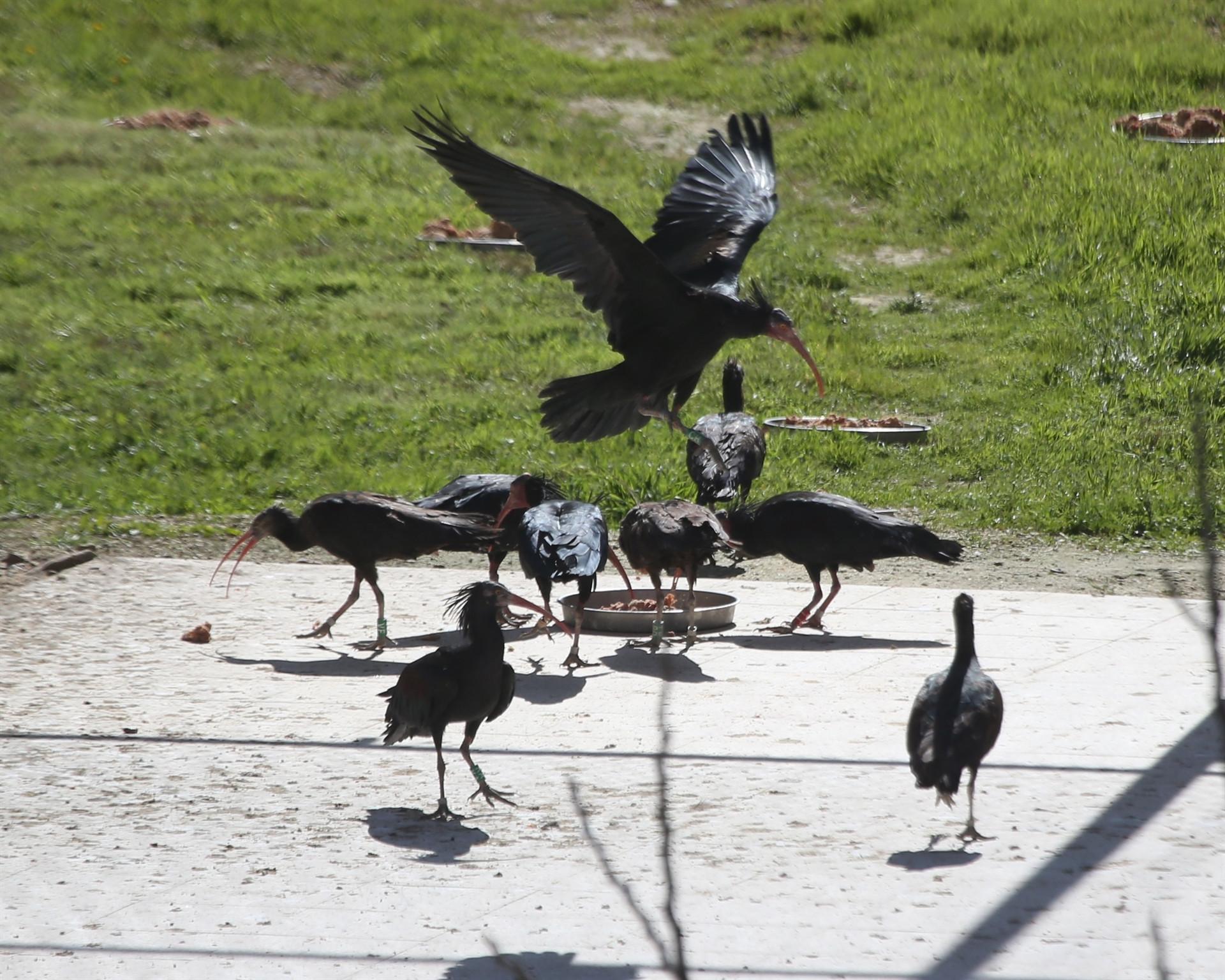
A record number of chicks are expected to be born this year from 261 bald ibises under protection at a center in the southeastern province of Şanlıurfa.
The bald ibises, a symbol of abundance according to the locals, are released into the wild in the Euphrates riverside in spring months before being caged again during migration season.
The species now lives in the Bald Ibis Reproduction Center, which was established in 1977 with 11 bald ibises in the city’s Birecik district, with the aim to ensure these critically endangered bird species survive and reproduce.
The center provides the near-extinct species a special diet consisting of fat-free ground meat, boiled eggs, grated carrots, chicken feed and unsalted cheese.
The center welcomed 38 chicks in 2016. The number increased to 47 in 2017. And with sporadic increases, this number reached 65 last year. But this year, 261 bald ibises under protection are expected to give birth to a record number of babies.
Speaking to state-run Anadolu Agency, Şanlıurfa Deputy Governor Selami Işık said they were protecting the bald ibises in the center covering a 20,000-square-meter area.
“The number of bald ibises currently stands at 261. We got 65 babies in 2018 and we expect to have more babies this year. Every one of them is very valuable for our nature and country. Now bald ibises are sent to zoos across the country,” he said.
Işık said public and non-governmental organizations were collaborating to protect these birds, recalling a time when some 600 bald ibises died in 1950 due to agricultural pesticide poisoning.
He said that bald ibises are also seen in Morocco, but unlike the ones in Turkey, they are not migratory. He said that their featherless head, which is their most important feature, gives the species its name.
Işık also noted that they have detected in laboratories that half of their birds are male.
The bald ibis species is near extinction in the rest of the world and is in the Red List of Threatened Species, published by the International Union for Conservation of Nature and Natural Resources (IUCN).